Posted on 7/29/2015
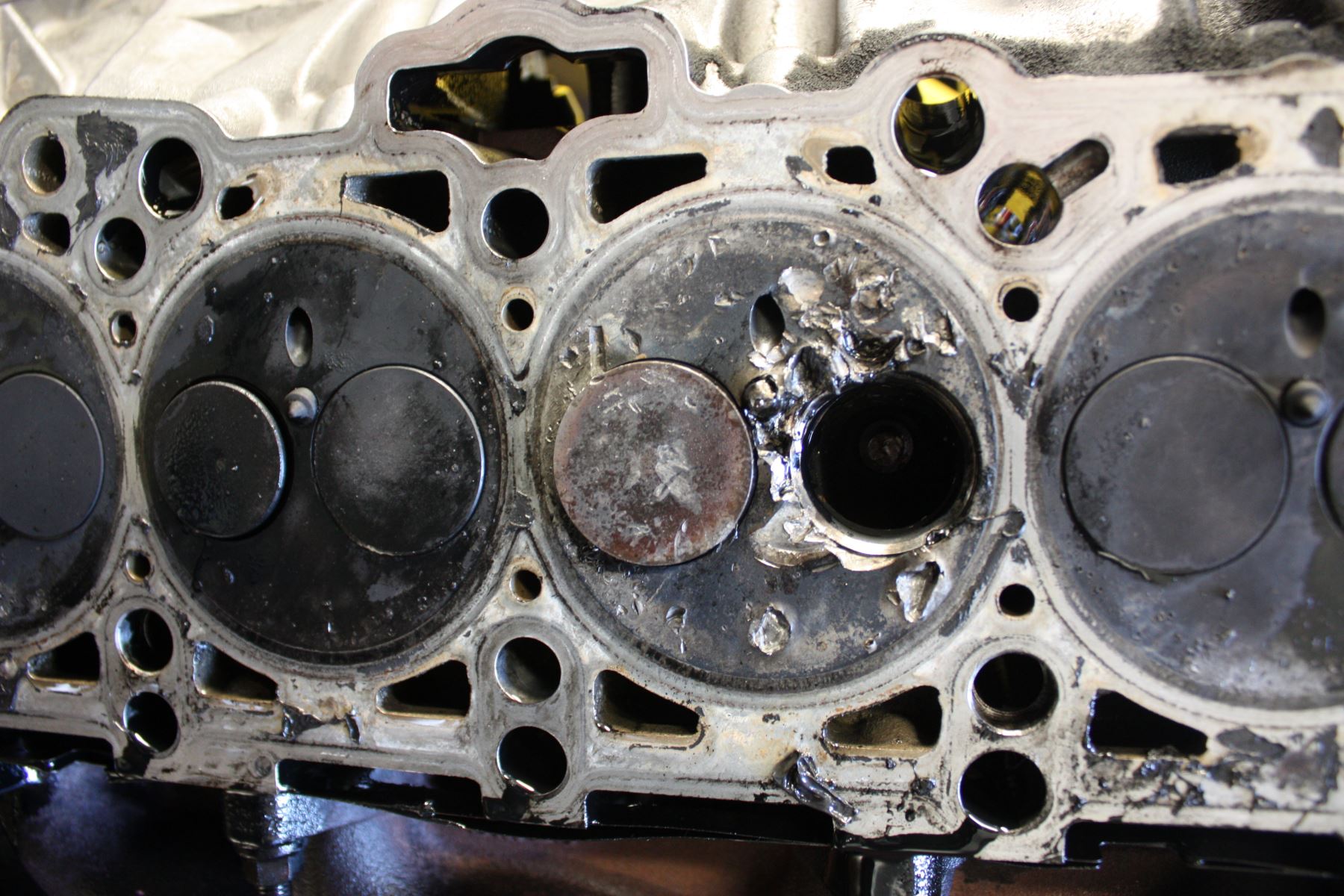
Here is a 2006 Volkswagen Jetta TDI with the cylinder head removed. It this case the timing belt did not break to cause this damage, but broken timing belt can and will cause similar damage. In this particular case it appears that the #3 fuel injector failed causing the cylinder to get drenched with fuel. The fuel either hydrauliced on the compression stroke and bent the exhaust valve or the valve stem got washed with fuel, was not properly lubricated, seized in the valve guide, made contact with the piston and this is the result. Picture #1 shows that the exhaust valve is missing from the cylinder head and the cylinder head is badly damaged. Picture #2 show the cylinder block with the piston in the down position. The wad of metal in the center of the picture is the #3 exhaust valve emended in the top of the piston. Picture #3 shows the cylinder block with the $3 piston in the full up position. Moral of the story; if your VW TDI start running poorly, get it in to us or a VW TDI expert ... read more
Posted on 5/15/2015
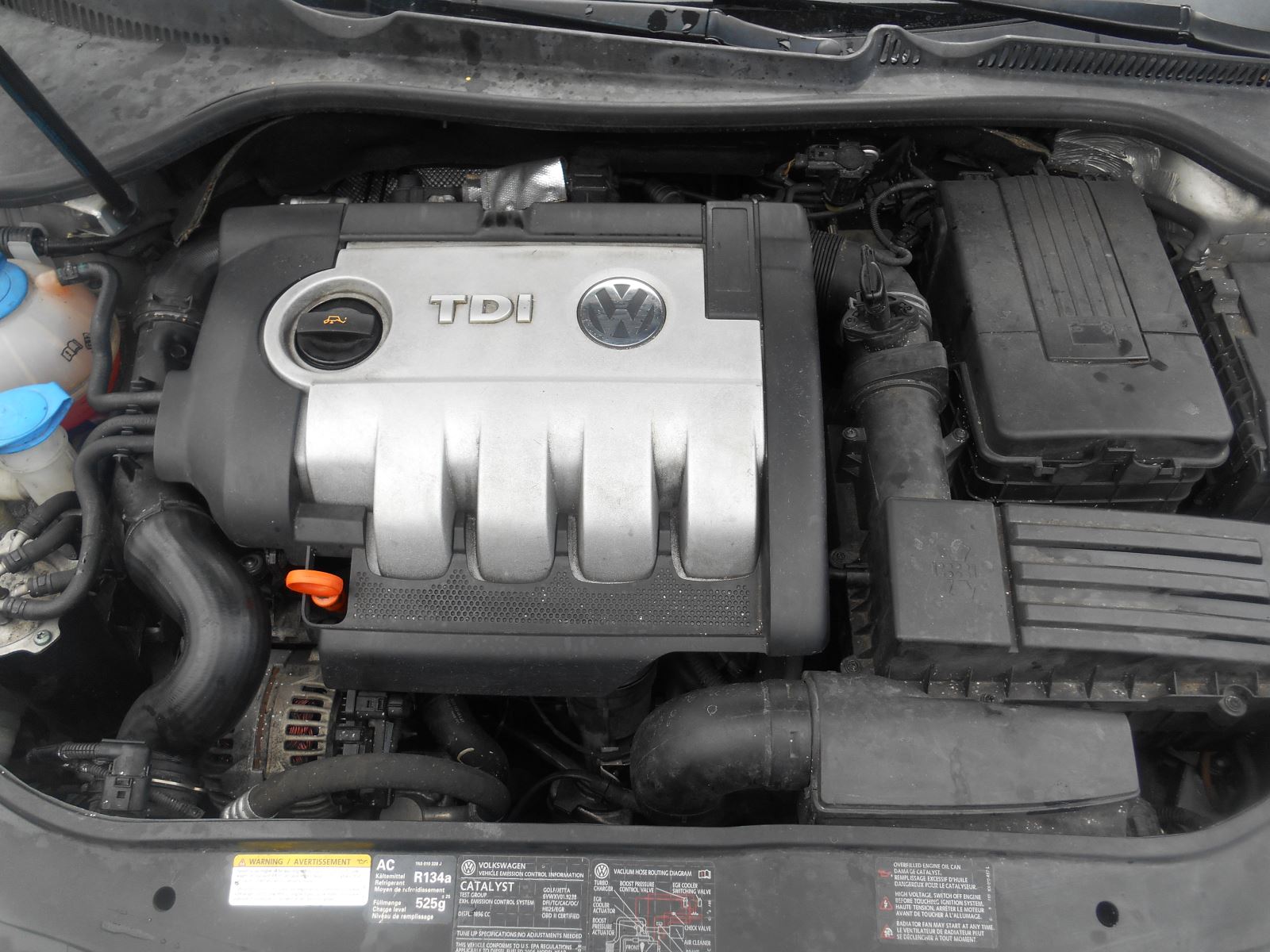
We have run into several cases of 2004-2006 Volkswagen and Audi TDI that came in with a loud engine ticking noise and possibly with the Check Engine Light illuminated. It is unclear if lack of oil services or using improper oil is the cause of the camshaft and lifter failure. VW recommends engine oil VW spec 505.01. We find that it is most common for #1 and #4 intake lobes and lifters to fail first. We have not seen any information to explain this occurrence or proof that lack of oil services can cause or increase the likely hood of this occurring. On the vehicle shown, it was #1 intake camshaft lobe and lifter that failed first and had the most damage. Because of the specialty tools required and very technical nature of this repair it is not recommended that this repair be performed by anyone that is not a skilled and trained VW | Volkswagen Technician. If you think you may be experiencing this problem, the sooner you can get it inspected the less damage will occur. If you live anywhe ... read more
Posted on 6/27/2014
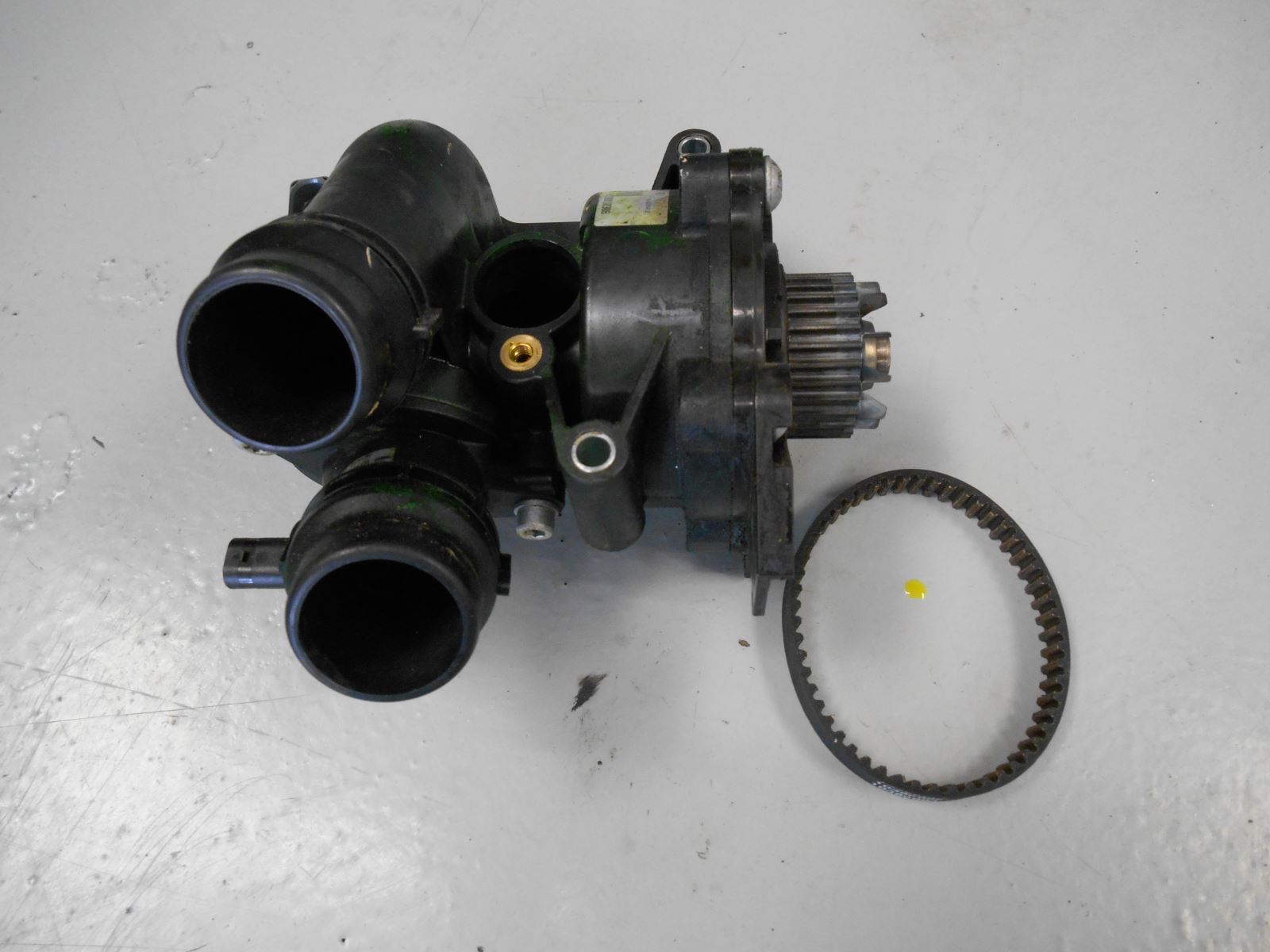
We recently got a 2011 VW GTI 2.0T in the shop. It was diagnosed to have a leaking head gasket at another shop. We would not condemn the head gasket until we could see exactly where the coolant was leaking from. We recommended to the client that the intake manifold be removed (as it would have to be removed anyway to replace the head gasket) and a pressure test be performed with the intake manifold out of the way. As you can see from the video, it was not a leaking head gasket, but a leaking water pump. *** I did incorrectly state in the video that this Volkswagen had an electric water pump. It does not, this VW GTI has a belt driven water pump as you can see in the picture. *** When the intake manifold was removed it was clear that the plastic housing of the water pump was leaking, not the head gasket. As you can imagine, our client was very relieved that it was a water pump repair rather than a head gasket replacement... If you are looking for a VW | Volkswagen Service and Rep ... read more
Posted on 5/8/2014
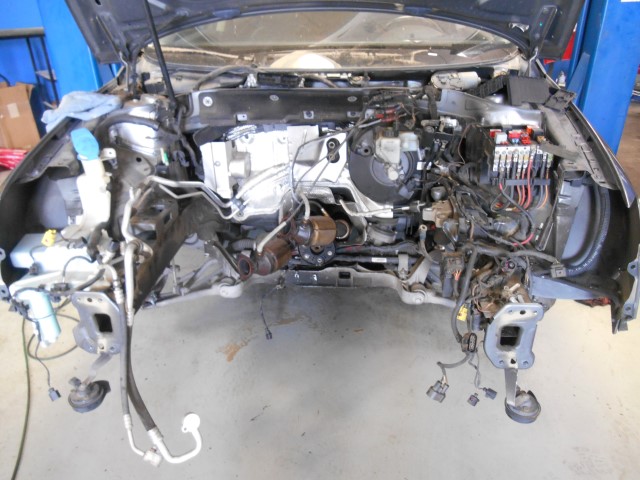
In the past we have seen a few VW |Volkswagen VR6 motors come in not running and after testing the vehicle and removing the engine and timing cover (rear of the engine). We found that the oil pump bolt had come loose and allowed the oil pump drive gear to walk out. It this case we had a Volkswagen Passat come in not running. We tested it and determined that crankshaft was turning and the camshaft was not. The VR6 is an interference motor so we recommended removal of the engine, removal of the cylinder head, inspection of the timing chains and replace the valves that are bent. After removing the engine and timing covers, we were surprised to find it was not the oil pump bolt that had come loose, but the lower timing chain had actually broken in half (chain fom the crankshaft gear to the oil pump gear). Here are some pictures of the repair including arrows pointing the eight bent valves. If you are in need of service or repair on your VW | Volkswagen whether it has a VR6 in it or not ... read more
Posted on 1/3/2014
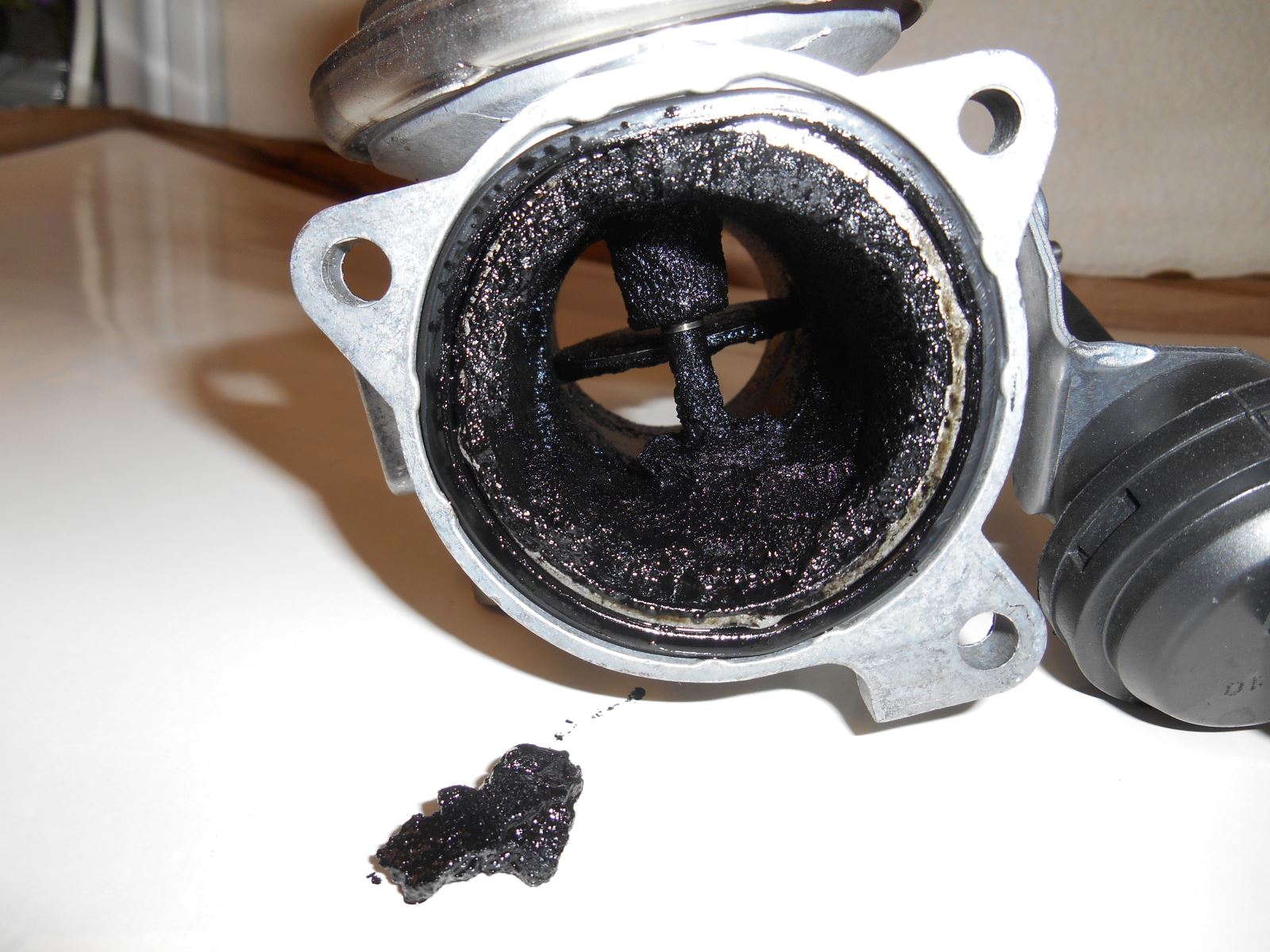
We are running into more and more cases of carbon build up in the throttle bodies and intake manifolds of VW TDIs. This is due to lack of maintenance. If you do not change you oil atthe recommended intervals and do not have a induction service performed regularly, this will most likely happen to your TDI. Oil vapor from the PCV system gets in to the intake manifold and starts building up as carbon. If it is not cleaned out regularly using a induction cleaning machine and induction cleaning chemicals soon the carbon build-up will restrict the air flow to your engine causing a hard start problem when cold, a lack of power, black smoke out the tailpipe and poor fuel economy. In some cases you may also get a Check Engine Light. If you have let your ... read more
Posted on 11/12/2013
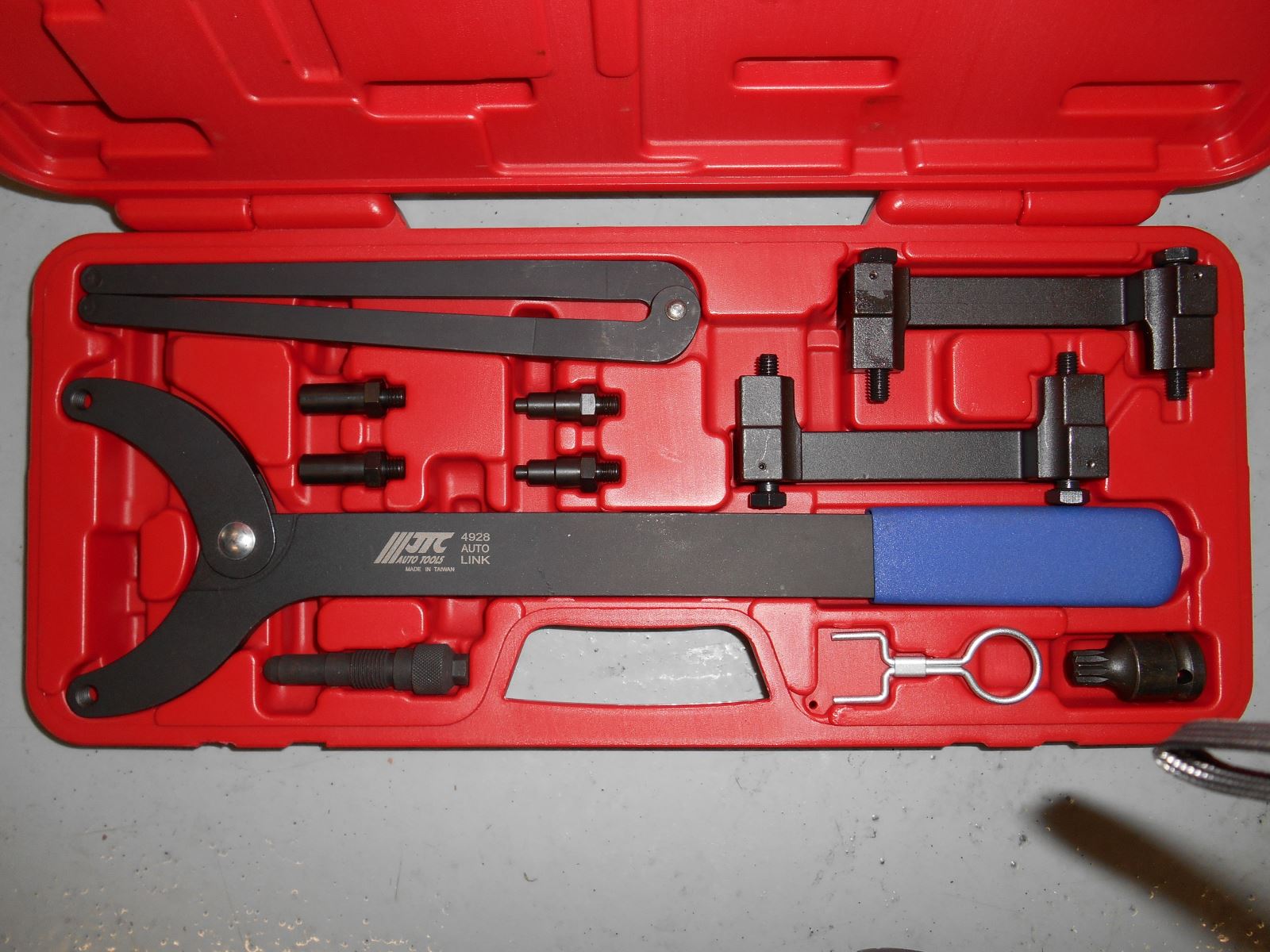
If you own or are repairing a Jetta 2.5L with code p1340 | 17748 be very careful with your testing and repair. Normally the code is set due to failing timing chain tensioner, broken timing chain guides or stretched timing chains. Occasional we run into this code due to a failing camshaft position sensor. But we ran into a strange one today. This VW has been to several other repair shops and has had camshaft and crankshaft position sensor replaced for over $600 with out any luck. The Check Engine Light comes right back on and it continued to idle rough. During the testing at the last shop it stopped running all together. If the steps below were followed the customer could have saved a lot of time and money: P1340/17748 - Crankshaft/Camshaft Position Signals Out of Sequence 1. With a ... read more
Posted on 9/19/2013
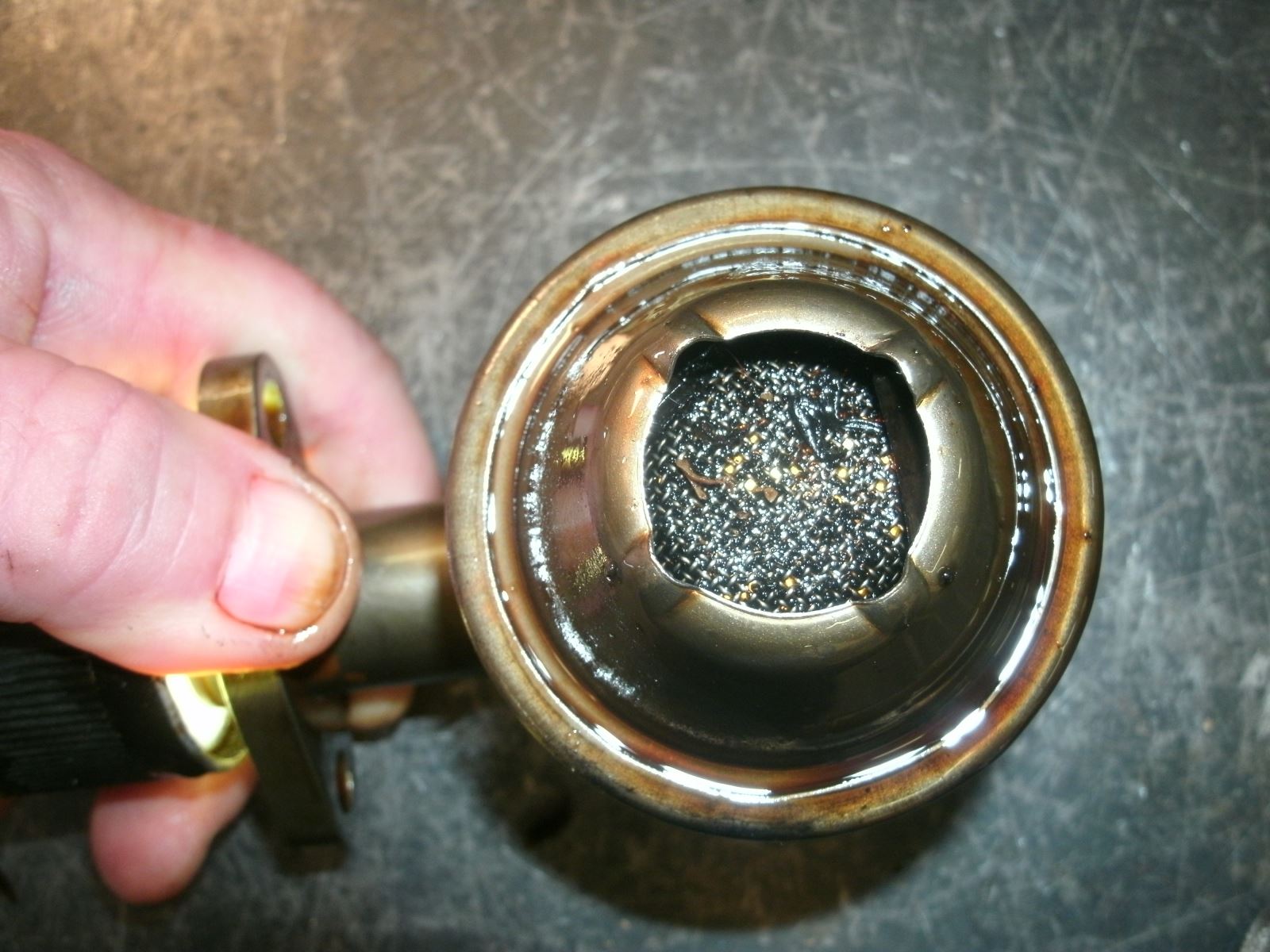
If the Low Oil Pressure indicator come on in you Audi or Volkswagen 1.8Turbo and it tells you to Stop The Car, it is probably a good idea. Here at European Autowerks we have run into this countless times. What most likely has occurred is the engine oil has been baked in the turbo and tuned to carbon. The pieces of carbon have, over time, plugged the oil pump pick-up screen. Unfortunately the oil pump pick up screen is right next to where the oil returns from the turbo. Once this happens no oil system service we have been able to find helps at all. Once the pick-up screen is plugged it is plugged and must be replaced. Replacing an oil pick up screen is not a do-it-your-selfer type job. It is quite a project. In the pictures we provided below, you can see the plugged pick-up screen and the ... read more